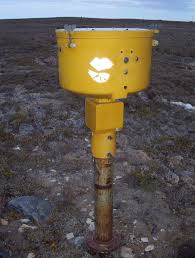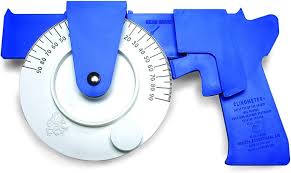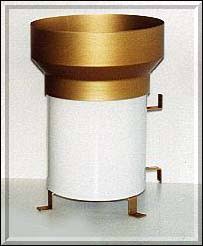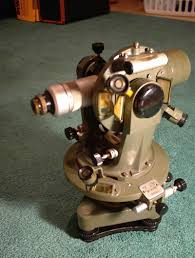Disaster Risk Reduction 2nd
1/89
There's no tags or description
Looks like no tags are added yet.
Name | Mastery | Learn | Test | Matching | Spaced | Call with Kai |
|---|
No analytics yet
Send a link to your students to track their progress
90 Terms
Landslide
slipping of a slope or cliff causing large amounts of rock and soil to collapse
Rotational
ground rotates & slides along a curved failure plane
Translational
Ground slides with little rotation along a flat plane parallel to the surface
Block Slide
translational type; one block of surface material that moves
Lateral Spread
Surface material extends or spreads on gentle slope; associated with earthquake shaking
Creep
Soil & surface material slowly moves down
Rockfall
Gravity sends rock & other mats in a downslope
Topple
pieces of a cliff or rock face fall forward as large block
Earthflow
fine-grained mats liquefies and runs in hourglass shape
Debris Flow
Rapidly moving of water, mud, flow, and others that flows downavelley
Debris Avalanche
Large & fast moving debris flow
Natural Landslide
Anthropogenic factors
Types of Landslides
Sinkhole
Depression/hole in the ground caused by collapse
Cenote, Sink, Swallet, Swallow hole, Doline
Sinkhole other terms
Karst Process
chemical dissolution of carbonate rocks or suffusionn
Cover-Collapsed
quick and cause catastrophic damage
Cover-Subsidence
overtime with ground subsiding gradually
Cover Collapsed
Cover Subsidence
Types of Sinkhole
Geological Hazard Maps
maps that indicate the hazard susceptible to a area
useful for disaster preparedness and management
Geologic Mapping
for education, science, business, and a wide variety of public policy concerns
Preventions
actions that influence the way land and buildings are developed to reduce hazard losses
- planning & zoning, floodplainlaws, storm water management regulations, improvement programs
Property Protection
modification/removal of structures to protect them from hazards
-elevation, relocation, acquisition, storm shutters,
Public Education & Awareness
Actions to inform citizens and elected officials about hazards to mitigate
-outreach projects, hazard information centers, adult education
Natural Resource Protection
minimize hazard loss and preserve the functions of natural systems
-sediment & erosion control, watershed management, forest & vegetable management
Emergency Services
protect people and property during and immediately after a hazard
-warning systems, emergency responses, essential facilities protection
Structural Projects
involve the construction of structures to reduce the impact of a hazard
Organize Resources & Build the Planning Team
Develop the Plan’s Risk Assesment
Assess Capabilities
Develop the Mititgation Strategy
Determine Plan Maintenance Processes
Obtain Mitigation Plan Approval & Adoption
Hazard Mitigation Plan
Hydrometeorology
branch of meteorology and hydrology that studies transfer of water & energy
Typhoon
low-pressure area in a counter-clockwise rotation in Western Pacific Ocean
Thunderstorm
lighting, thunder, rainfall from cumulonimbus clouds
Flash Floods
in short period within 6 hours after the end of the event; fast
Storm Surge
rise of seawater above normal
Flood
overflow of water onto land; after 6 hours of an event; last longer
El Nino
periodic warming on central and east Pacific Equator
La Nina
cold phase; part of ENSO phase

Barograph
writing arm that records barometric pressure; rises or falls on a revolving scroll of paper

Thermograph
measures & records temperatures & humidity

Ceiling Light Beam
project light beams to the clouds

Clinometer
determines height of the cloud by distance of it to the ground
Ceiling Balloon
pilot/pibal, height of the cloud by clouds above ground

8-inch Rain gauge
diameter is 8 -inches above a funnel; conducts rain into a tube

Theodolite
measures wind speed & direction; attached to a pilot balloon
Sling Psychrometer
dry & wet bulb thermometer
Radiosonde
measures temperature, pressure, & relative humidity
Fire
rapid oxidation of a material in the exothermic chemical process of combustion, releasing heat, light and reaction
Oxygen, heat & Fuel
referred to as “Fire triangle”
Flame
visible portion of the fire
carbon dioxide, water vapor, oxygen, & nitrogen
Class A
Solids; common type of fuel; hard to eliminate
Water extinguisher
any kind of combustible material
Class B
Liquids; cleaning fluids, solvents, fuels, inks, adhesives, & paints
21% of fatalities; 2% of fires
Foam/Powder Extinguisher
Class C
Gases ; natural gas, LPG
Dry Powder extinguisher
Class D
metals ; sodium
Dry Powder extinguishers
Electrical Fires
electricity, source of ignition than fuel
Class F/K
cooking fats & oil
deepfrying fat oil, spillages of flammable oilsWet chemical extinguishers or fire blanket
Water
Best cooling agent
Wet Chemical extinguishers
extinguishers for Class F/K fires
P.A.S.S
Pull Aim Squeeze Sweep
Community Preparedness
establishing a disaster preparation strategy in your community
Philippine Red Cross
Who said what are the essentials for a survival kit?
3 day supply for evacuation of Water
What is the amount needed of water?
2 weeks supply for home
What is the amount needed of water in home safety?
Prevention
Mitigation
Adaption
Disaster Risk Reduction
Preparedness
Relief
Recovery
Disaster Management
Risk Identification/Assessment
Hazard Analysis & Monitoring
Vulnerability analysis
Determination of risk
Prevention & Mitigation
Land Use Planning
Land Management
(Non) Structural Measures
Preparedness
Early Warning
Evacuation
Emergency Planning
Recovery
Rehabilitation
Reconstruction
Rescue Services
R.A 10121
Section 2. Declaration of Policy
Uphold peoples constitutional rights by addressing root causes of vulnerabilities to disasters, strengthening country’s institutional capacity for disaster risk and building resilience of local communities including climate change impacts
Philippine Disaster Risk Reduction and Management Act of 2010
another name of the R.A 10121 as stated in Section 1
The National Disaster Risk Reduction and Management Framework
What does the NDRRMC develop?
Every 5 years or as needed
How often is the NDRRMF reviewed and updated
Principal guide for disaster risk reduction and management
What role does the NDRRMF serve?
Section 6 of R.A 10121
Powers and Functions of the NDRRMC
Section 14 R.A 10121
Integration of Disaster Risk Reduction Education
DepEd, CHED, TESDA, & others
Which agencies are responsible for integrating DRR education?
Secondary and tertiary school curriculum
Where is DRR education integrated?
OCD, NYC, DOST, DENR, DILG, DOH, DSWD and others
Who do these agencies coordinate with for integration?
Barangay DRRMC
Who leads the disaster response in a barangay-level disaster?
If two or more barangays are affected?
When does the City/Municipal DRRMC take the lead?
If two or more cities/municipalities are affected
What level does the Provincial DRRMC coordinate the response?
NDDRMC
takes the lead if two or more regions are affected
LGU (Local Government Units)
Primary responders in disaster situations
National Disaster Reduction and Management Plan 2011-2028 (NDDRMP)
build disaster-resilient communities and reduce disaster and climate risks
enhance Disaster Preparedness and response capabilities at all levels
“Safer, adaptive, & disaster-resilient Filipino communities towards sustainable development”
Vision of the NDRRMP
R.A 9710
Magna Carta of Women
Protection and security during all phases of relief, recovery, rehabilitation and construction
What does Section 10 of the Magna Carta of Women ensure for women?
Humanitarian assistance, resource allocation, and early resettlement
What kind of assistance must the state provide to women during disasters?
Prevent Sexual Exploitation and Gender-based violence
How are women’s needs addressed under the Magna Carta of Women?
Psychosocial support
Livelihood assistance
Education
Comprehensive health services with pregnancy protection
What services are provided to women under the Magna Carta of Women?